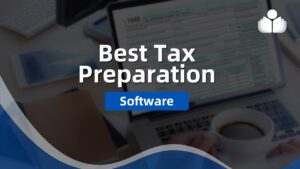(including getting tax-exempt status)
Assembled by Carter McNamara, MBA, PhD
Applies to nonprofits unless otherwise noted.
Sections of This Topic Include
- Do I Need Help to Get Started?
- Importance of Good Record Keeping
- Getting Tax-Exempt Status
- Federal, State, Sales, Payroll Taxes, etc.
- Preparing and Filing Form 990s (including public disclosure)
- Donations and Taxes
- Unrelated Business Income Taxes (UBIT)
- Lobbying and Taxes
- Assessing Your Tax Management Practices
- Special Topic — When Hiring, Need Independent Contractor or Employee?
- General Resources
- Free, Online, Self-Paced Program to Completely Build/Strengthen Your Nonprofit
Also, consider
Related Library Topics
Learn More in the Library’s Blog Related to Taxation and Nonprofits
In addition to the articles on this current page, also see the following blogs that have posts related to Taxation and Nonprofits. Scan down the blog’s page to see various posts. Also see the section “Recent Blog Posts” in the sidebar of the blog or click on “next” near the bottom of a post in the blog. The blog also links to numerous free related resources.
Library’s Nonprofit Capacity Building Blog
Library’s Social Enterprise Blog
Do I Need Help to Get Started (with taxes, payroll, etc.)?
(If you’re just getting started with your new nonprofit, then see the section Starting a Nonprofit.)
You Can Do Much of the Work Yourself — But Get Tax Advice and Guidance
You should strongly consider getting some help with your taxes. You can do much of the work yourself, but you should have some basic guidance and advice from a tax advisor who understands nonprofit matters. For example, it’s very important how you characterize your plans when filing for incorporation with your state or for tax-exemption with the IRS. In addition, there are various reports and filings you likely have to submit. When you’re tax-exempt, you’re likely to also be exempt from a variety of other taxes, including state, property and sales taxes. A nonprofit-knowledgeable
tax advisor can help you a great deal. Ask other nonprofits for references to good tax advisors. Ask a local funder. Call the accounting aid association. Note that, in Canada, you can get tax-exempt status at the provincial or federal level.
The following links might also help you. See:
- 3 Types of Bookkeepers: Do You Need One and Which is Best for Your Business?
- Getting and Using a Lawyer
- Tips for Choosing a Tax Preparer
Using a Payroll Service
As a new nonprofit, you should strongly consider using a payroll service. This type of service can work with your tax advisor (or provide tax advice, as well) to ensure regular and accurate withholdings for various types of taxes. The service can also produce the reports needed to file your yearly taxes. You might get a recommendation for a service by calling your local association of certified public accountants or several nonprofits that are similar in nature to yours.
Importance of Good Record Keeping
Good tax management starts with good record keeping, especially financial records. You should have a basic sense about Financial Statements
Getting Tax Exempt Status
You do not have to get tax-exempt status. However, you should seriously consider this because it allows you to avoid paying federal taxes on your income (within certain limits and types of income). It also helps you to raise money more easily.
NOTE: Obtaining tax-exemption if often one of the steps visited when formally starting up your nonprofit. See Starting a Nonprofit.
NOTE: Most states also allow tax-exempt nonprofits to also be exempt from some types of income, sales and property taxes. To find out which taxes you might be exempt from, contact your Attorney’s General office in your state.
Here are two affordable attorney’s services:
Basics of Getting Tax-Exemption
Look at the IRS Applying for Tax-Exempt Status
Then review Nonprofit Basics
IRS Form to File for Exemption
You might review the list of types of tax-exempt organizations to note (most of) the IRS’s wide variety of organizations and classifications of tax-exempt nonprofits.
Nonprofit organizations file for tax-exemption by using IRS Publication 557, Tax-Exempt Status for Your Organization.
Where to Get More Forms
Any needed federal forms can be downloaded from the Tax Information for Charities & Other Non-Profits.
Sample 501(c)(3) Application
There are a variety of tax-exempt classifications. The 501(c)(3) is one of the most well known, and is for “charitable organization”. Note that this classification does not necessarily mean that the nonprofit is also charitable and/or tax-deductible.
Form 1023 Help
Federal, State, Sales, Payroll Taxes, etc.
Tax-exempt organizations usually do not have to pay federal taxes on income. In addition, many states provide exemptions to income taxes, property taxes, sales taxes, etc. It would be extremely difficult to track and report any standard guidelines about these various types of taxes across the states. The best way to find out what taxes you have to pay is to contact your Secretary of State’s office.
Using a Payroll Service
(As noted above, if you are a new business, you should strongly consider using a payroll service.)
Also see: Online Payroll Taxes — Where to Get Help
Preparing and Filing Form 990s
The nonprofit tax form that is filed to the IRS is the Form 990.
How to Read the IRS Form 990 & Find Out What it Means
Quality 990 Site (has many resources)
Completing the 990 online
Revision of Form 990
- Summary of Form 990 Redesign Process
- IRS Has Revised the Form 990
- Redesign Form 990 Requires Extensive Preparation
Public Disclosure of Form 990s
- Form 990 Policies — Is It Better to Check Yes or No?
- NPO Public Disclosure Regulations Site
- Tax Form 990 changes offer chance to disclose broadly
Donations and Taxes
- Substantiating Charitable Contributions
- Tax-Exempt Organizations Alert: Reporting Requirements for Non-Cash Charitable Donations under the Form 990
Also, consider
Registration of Fundraising Activities
Unrelated Business Income Taxes (UBIT)
The IRS limits the amount the revenue a nonprofit can make that is not directly associated with the mission of the nonprofit. This is in order to prevent nonprofits from unfairly competing with for-profit organizations.
Nonprofits Can Generate an Earned Income
The publication, Venture Forth!: The Essential Guide to Starting a Moneymaking Business in Your Nonprofit Organization, includes step-by-step guidelines to plan an earned-income venture for nonprofits, including the necessary financial analyses and forms, and guidelines about addressing UBIT.
Lobbying and Taxes
There are certain limitations on lobbying by all types of tax-exempt organizations, for example, 501(c)(3), 501(c)(4), etc.
Basics
Miscellaneous Topics
General Resources
- Form 990 Resources and Tools
- Minnesota Council of Nonprofits’ “Principles and Practices”, scroll down to section on lobbying
- An Introduction To Lobbying By Charities
To Audit Your Taxation (and Legal) Practices
Be Careful: When Hiring, Need Independent Contractor or Employee?
The IRS seems increasingly skeptical about business use of independent contractors. The IRS is concerned, for example, that businesses might be avoiding employment taxes by using independent contractors instead. Therefore, businesses must be careful when determining if they should hire a contractor or an employee. The following link will help you in this regard.
General Resources
IRS Service Center (dedicated to exempt organizations) — Call 877-829-5500
For the Category of Taxation (Nonprofit):
To round out your knowledge of this Library topic, you may want to review some related topics, available from the link below. Each of the related topics includes free, online resources.
Also, scan the Recommended Books listed below. They have been selected for their relevance and highly practical nature.
 Sections of this topic
Sections of this topic
















